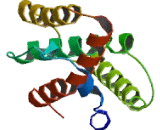Blog Post
Exploring the Role of Interleukin 24 in Immune Regulation
Introduction:
Interleukin 24 (IL-24) is a cytokine that has gained significant attention for its intriguing roles in immune regulation, cancer biology, and inflammatory responses. In this blog post, we’ll delve into the multifaceted functions of IL-24, its signaling pathways, and its implications in various disease contexts. Join us as we uncover the complexity of IL-24 and its potential impact on biomedical research and therapeutic development.
Functions of IL-24:
IL-24 plays a diverse range of roles in immune regulation, including its ability to induce apoptosis in cancer cells, modulate inflammatory responses, and regulate immune cell functions. It is involved in mediating antitumor immunity by promoting cell death in cancer cells while sparing normal cells, making it a promising target for cancer immunotherapy. Additionally, IL-24 has been implicated in the regulation of autoimmune diseases and allergic responses, highlighting its importance in maintaining immune homeostasis.
Signaling Pathways:
IL-24 signals through various pathways, including the JAK-STAT pathway, MAPK pathway, and PI3K-Akt pathway, depending on the cell type and context. Activation of these pathways leads to downstream effects such as cell cycle regulation, apoptosis induction, and immune cell activation. Understanding the intricate signaling mechanisms of IL-24 is crucial for developing targeted therapies that harness its immunomodulatory and anticancer properties.
Implications in Disease:
The dysregulation of IL-24 expression has been linked to several diseases, including cancer, autoimmune disorders, and inflammatory conditions. Studies have shown that IL-24 acts as a tumor suppressor in various cancer types, inhibiting tumor growth and metastasis through its proapoptotic and antiangiogenic effects. Moreover, IL-24 has therapeutic potential in treating inflammatory diseases by modulating cytokine production and immune cell functions.
Future Perspectives:
As research on IL-24 advances, there is growing interest in exploring its therapeutic applications in cancer treatment, autoimmune disorders, and inflammatory diseases. Investigating the interplay between IL-24 and other cytokines, immune cells, and signaling pathways will provide valuable insights into its mechanisms of action and therapeutic potential. Collaborative efforts between researchers and clinicians are essential for translating IL-24 research into clinical interventions that benefit patients.
Conclusion:
Interleukin 24 (IL-24) emerges as a key player in immune regulation, cancer immunology, and inflammatory responses. By unraveling the intricate functions and signaling pathways of IL-24, researchers aim to develop targeted therapies that harness its immunomodulatory properties for combating cancer and autoimmune diseases. Stay informed about the latest IL-24 research and its implications for biomedical advancements and therapeutic innovations.


